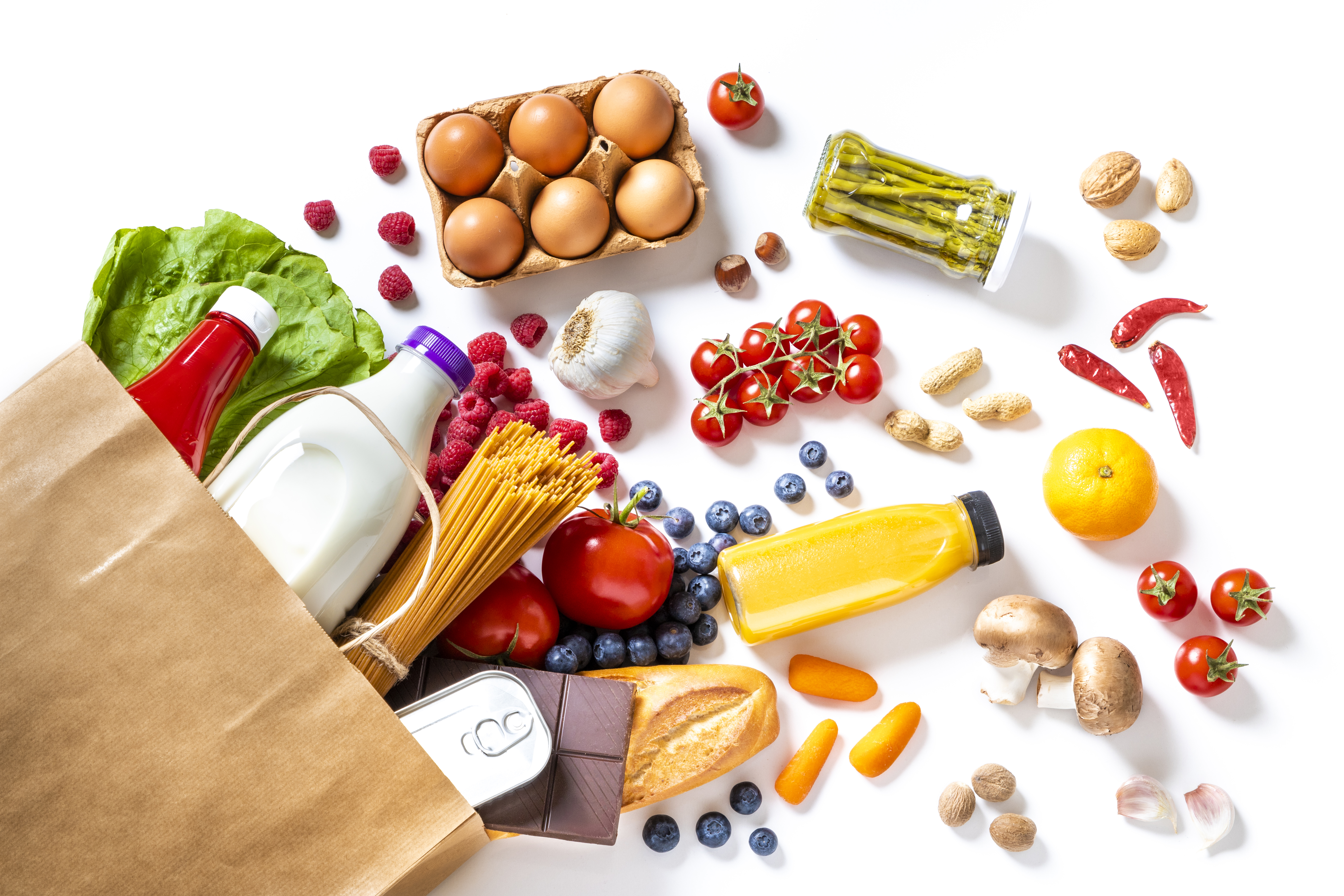To Buy Organic or Not?

Honestly, a trip the grocery store to do a weekly shop for the family can be overwhelming. Where we once found select organic options, we now see conventionally-grown or produced broccoli or almonds or chicken soup right next to its organic companion. What do to? Well, it’s tough. While organic foods may yield slightly increased nutrition and don’t come with potential risks of pesticide exposure, studies struggle to demonstrate substantial health benefits.1 With organic’s considerable price tag, it’s hard to know when the benefits outweigh the cost.
What does “organic” really mean? When you see the term "organic" on food, cosmetics, or cleaning products, it refers not just to the product itself, but also to how the produce or ingredients were grown and prepared. Organic fruits and vegetables have been grown without any synthetic chemical ingredients or irradiation treatment.2
Health benefits of organic. Organic foods provide some health benefits when compared to conventionally grown foods, according to a substantial number of studies.1 For instance, a 2014 study showed that organically grown crops were not only less likely to contain detectable levels of pesticides, but because of differences in fertilization techniques, they were also 48% less likely to test positive for cadmium, a toxic heavy metal that accumulates in the liver and kidneys.3 One thing is for sure though, buying organic produce reduces exposure to synthetic chemicals like pesticides, which have been linked to cancer, infertility and disorders of the nervous and immune systems.3
Organic meat and milk can contain up to 50% more omega-3 fatty acids, a form of unsaturated healthy fat, than conventionally produced products. This proved that organic milk had less saturated fat than non-organic milk tested in the study.3
Produce to avoid. You’re at the store standing in the produce section. Which fruits and veggies deserve your organic dollars based on what we know right now? Let’s start with the Dirty Dozen, the Environmental Working Group’s list of top twelve most contaminated fruits and vegetables on the market this year.4 Keep this list in your phone to make shopping easier from week to week, but remember it’s updated annually, so check the EWG website each year.
- Strawberries
- Spinach
- Nectarines
- Apples
- Peaches
- Pears
- Cherries
- Grapes
- Celery
- Tomatoes
- Sweet bell peppers
- Potatoes
No organic needed. Now that we know which organic items are most deserving of our dollars, which conventional ones can we feel good about buying? Thanks again to the EWG for their Clean Fifteen, the list of lowest pesticide rated produce.4 Pesticide residue is deemed lowest foods on this list.
- Sweet corn
- Avocados
- Pineapples
- Cabbage
- Onions
- Frozen sweet peas
- Papayas
- Asparagus
- Mangoes
- Eggplant
- Honey dew melon
- Kiwi
- Cantaloupe
- Cauliflower
- Grapefruit
What about meat? When it comes to animal protein, beef may be most-deserving of your organic dollars. Possible links have been identified between the hormones given to cattle and some cancers, such as breast cancer.5 Buying organic beef reduces exposure to those hormones. If you choose one meat to buy organic, select beef products.
No matter what, wash produce. The best way to eliminate risk of exposure to bacteria or pesticide residue on the fruits and vegetables you purchase, whether organic or not, is to wash it well at home. Even food products that are peeled before eaten should be scrubbed vigorously and dried with a clean paper towel before peeling.1
The bottom line. If you want to be discerning with your grocery funds while limited exposure to synthetic chemicals in conventionally-grown foods, follow the EWG’s lists and use them as a guideline for purchases. Strategically integrate as much organic as you can to eliminate your risk. And then wash your fruits and veggies with water and dry them well before peeling, cooking or eating.
References:
5- 11 things it's best to buy organic. (n.d.). Retrieved June 24, 2021, from https://www.health.com/food/11-things-its-best-to-buy-organic
1- Are organic foods worth the price? (2020, April 08). Retrieved June 24, 2021, from https://www.mayoclinic.org/healthy-lifestyle/nutrition-and-healthy-eating/in-depth/organic-food/art-20043880
4- Group, E. (n.d.). EWG's 2021 Shopper's guide to pesticides in Produce™. Retrieved June 24, 2021, from https://www.ewg.org/foodnews/full-list.php
3- Naftulin, A. (2017, July 27). 4 science-backed health benefits of eating organic. Retrieved June 24, 2021, from https://time.com/4871915/health-benefits-organic-food/
2- Weiss, M. (n.d.). What does "organic" really mean? Retrieved June 24, 2021, from https://www.thespruceeats.com/what-does-organic-really-mean-1708952
For more information, please visit www.combinedinsurance.com
